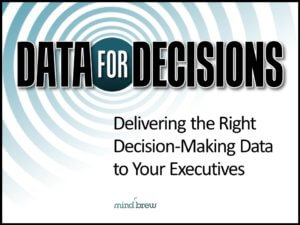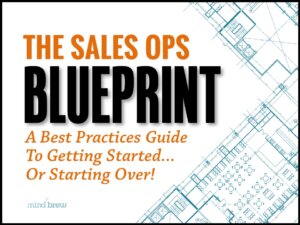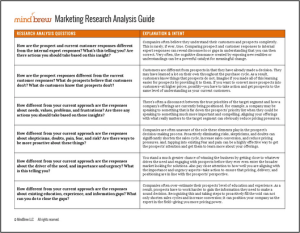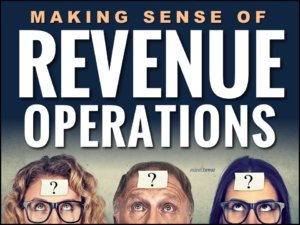Figuring what sales data to deliver to management couldn’t be easier, right? You go meet with them or just send them an email. You ask them what they want to see on a regular basis. And then you just pull together the reports and make it happen. Simple. Straightforward. Easy peasy.
But is it effective? No, not really.
I hate to break it to you, but management doesn’t always know what sales data they should be looking at. They may not know what’s going to be most helpful toward answering the big questions and achieving the overall objectives. And because they aren’t data wonks, they’re probably not even aware of what’s available, what’s possible, and what could be developed or synthesized.
Sure, they’ll likely have some bread-and-butter ideas and top-of-mind suggestions for what they think they want to see.
But I would be shocked…and very impressed…if a sales manager responded with something like, “Glad you asked! I’d like to see the whitespace opportunities for every account in my territory, sorted by assigned sales rep, and ranked by dollar value. Can you give me a Top 10 across my whole territory, with the ability to drill down to all data for individual reps or specific accounts? Thanks!”
The point is that if you’re just giving management what they say they want, you’re missing a huge opportunity—because what they say they want to see and what they really need to see are very often different things.
All that being said, I’ll take it a step further…
Even when provided the right data…the data they need to see, but don’t know to ask for…management may not know how to interpret that data accurately. Again, not being data wonks, they may not know what the data is really saying or what it’s actually indicating. They may not know what’s good, what’s bad, what’s normal, what’s an outlier, what’s a symptom, what’s a root cause, and so on.
Regardless, they’ll draw conclusions about whatever they’re seeing. And those conclusions could be very wrong. Those inaccurate conclusions could then lead to corrective actions that are ineffective at best and counterproductive at worst.
The bottom line is that it’s not good enough to just give them what they want. And while giving them what they truly need is certainly a huge step in the right direction, it could still miss the mark due to misinterpretation.
So…you not only have to figure out what they actually need, you have to deliver it in such a way that the right conclusions are somewhat obvious. Granted, it’s not nearly easy as just asking, “Hey, what do you want?” But it’s a whole lot more valuable and effective.
The choice is yours. I know you’ll do the right thing 🙂












